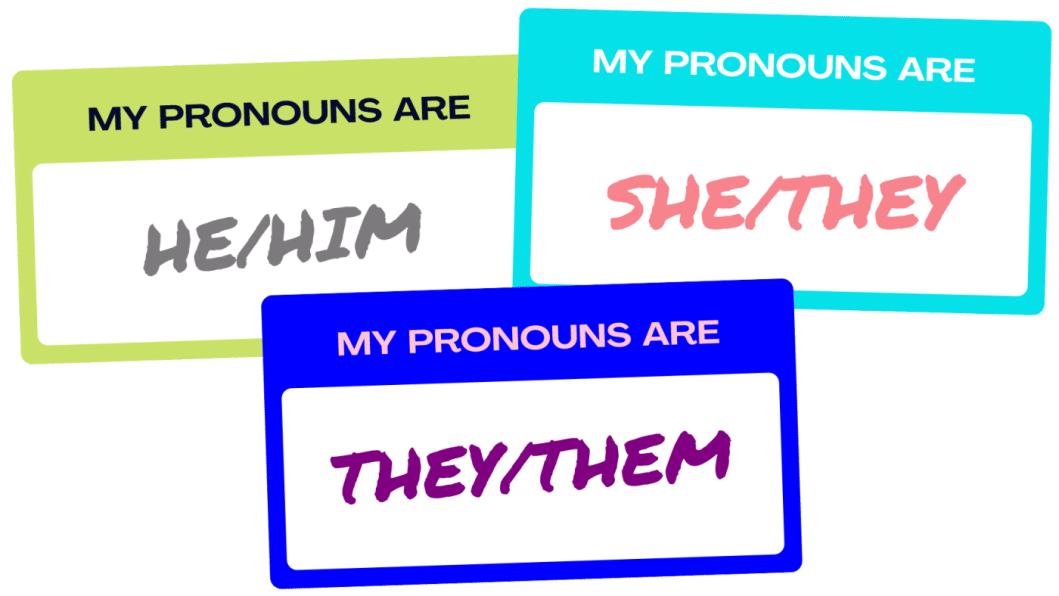What’s the big deal with gender pronouns anyway?

In recent years, the practice of including your preferred pronouns during introductions has become increasingly common. Whether it be during debates, meetings, ice breaker sessions, or Instagram bios, personal pronouns have started to integrate themselves into our interactions with others more so than they ever were before.
However, it is quite unfortunate how the notion of having personalised pronouns is still considered laughable by many. Misinformed beliefs cause a lot of individuals to insist on using the pronouns that they deem right for somebody based on their outward gender expression.
Navigating through this specific topic may feel difficult, so let's explore what each of these mean.
For us to understand the concept of gender identity, we must first unlearn the idea that biological sex and gender are tied together. Both deal with expression of physical and personal traits, however, they do not necessarily have to act in accordance with each other.
The Spring 2017 issue of Sex, Gender, and Medicine by Stanford Medicine magazine says "Gender is inextricably linked to sex, but not defined by it. And it indisputably affects health," providing backbone to the claim that gender is based on society and culture, rather than solely relying on the chromosomal makeup of one's biology.
One's esoteric feelings about their own gender is not necessarily always related to biology. This is where the great debate about whether or not sex and gender are the same thing comes in. Succinctly speaking, they are not. As the world progresses and advances, we have come to know that gender identity has to do more with psychology than anatomy.
Our X and Y chromosomes may determine our biological makeup, but pure biology is not what makes a human, a human. What sets us apart from every other species in the animal kingdom is our ability to think, perceive, feel, and form personalities.
Pronouns act as an excellent tool for people to express their gender identity, and they do an amazing job in doing so as well. For a lot of people, their personalised pronouns are a way for them to communicate their deeply personal relationships with their gender to the outside world. One may choose to use the binary pronouns such as he/him or she/her, or they might choose to go with gender neutral pronouns such as they/them. Whichever set of words they choose, it is important for us to not assign pronouns to them based on what we perceive them as.
Using somebody's preferred pronouns when addressing them is an act of mutual respect. A standard rule of thumb is to simply ask them, "What are your preferred pronouns?" upon meeting someone new. Know that it is okay to make mistakes, but it is even better if you are to correct yourself.
We as humans continue to learn and conduct more research about phenomena surrounding ourselves, and our habits and perceptions change based on what we have learned. This unique ability allows societies to thrive, and people from various communities to feel more at home.
References
1. Medscape (Dec 09, 2020). Gender Identity
2, Stanford Medicine (Spring 2017). Sex, Gender, and Medicine
Koushin is currently on her fourth character arc this year. Send her video essays on indie films to cope at: [email protected]

 For all latest news, follow The Daily Star's Google News channel.
For all latest news, follow The Daily Star's Google News channel. 




Comments